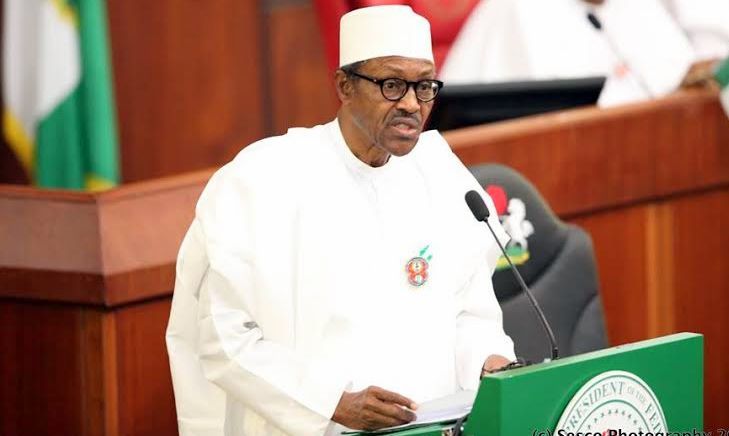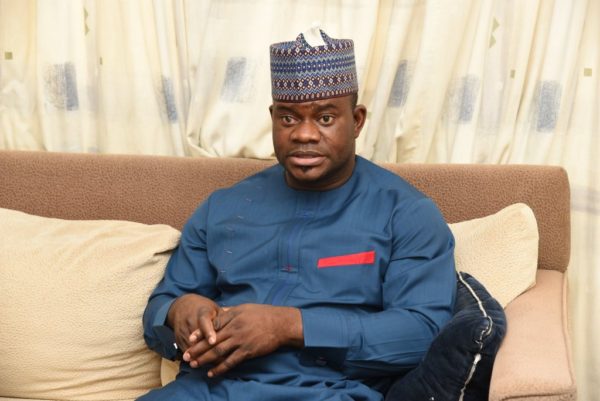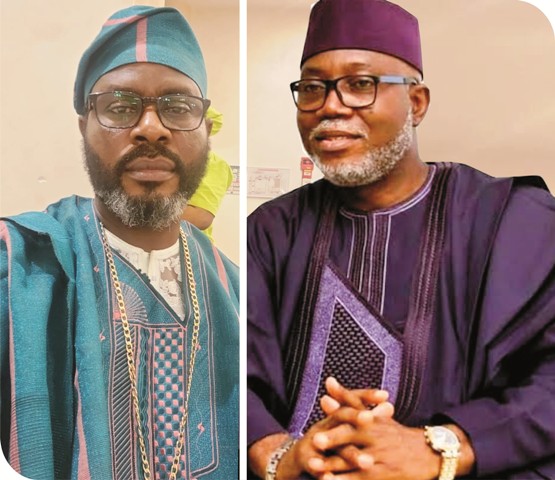No Amount Of Blackmail Will Make HE Yahaya Bello ‘Come Through Backdoor’- Media Office
On Tuesday, 23rd April 2024, Mr. Olanipekun Olukoyede, in a conduct which we view as unbecoming of a Legal Practitioner, organised a press conference where he alleged (amongst other outrightly defamatory statements) that His Excellency, Alhaji Yahaya Bello, withdrew cash from the Kogi State Government Account, sent same to Bureau De Change Operators and then used same to pay the school fees of his children in advance.
According to Olukoyede, the payment was made just about the time the former Governor was to leave office.
Since the said press conference, receipts of payments of the said fees bearing the names of His Excellency’s Children and those of other family members, who separately paid their fees, have been flying all over the internet.
While we reserve our rights to seek redress against the said defamatory statements, permit us to briefly state the following for the purpose of setting the records straight:
1. His Excellency, Yahaya Bello’s children have attended the American International School, Abuja well before he became Governor and he has paid fees for his children as and when due and without fail.
2. His Excellency, Alhaji Yahaya Bello did not pay the sum of USD720,000 as alleged by the EFCC Chairman or USD840,000 as is being bandied about on the internet.
3. The payment of the fees was not effected at about the time his Excellency was to leave office as claimed by Mr. Olukoyede but same commenced in 2021.
3. Alhaji Yahaya Bello DID NOT pay the fees of his Children with monies from the Coffers of the Kogi State Government.
4. When the EFCC approached the American International School Abuja (AISA) to illegally recover funds legitimately paid by Alhaji Yahaya Bello and other family members, a member of the family challenged the EFCC’s unlawful acts to recover funds legitimately paid. The FCT High Court, in Suit No. FCT/HC/2574/2023 between: Mr. Ali Bello v. The Incorporated Trustees of American International School, Abuja, held that AISA could not lawfully and unilaterally refund to a third party, including the EFCC, fees paid by the parties to the suit.
The Court subsequently mandated AISA to continue to provide the services it had been paid with respect to the fees.
From the foregoing, it is clear that no money belonging to Alhaji Yahaya Bello or his family members with regard to school fees has been recovered by the EFCC.
5. Now, let it be known that, contrary to misleading narratives by the EFCC, all the documents published online i.e. receipts and letters, that the EFCC has released online, in furtherance of its unrelenting persecution of the former Governor, are documents filed by lawyers in the suit instituted on behalf of Alhaji Yahaya Bello and others who paid fees for their wards under the Advance Fee Payment Agreement with AISA.
Those documents, having been filed by his lawyers, are thus public documents, which shows that his Excellency, Yahaya Bello, has nothing to hide with regard to the payment of advance fees for his children. This unending harassment and persecution, even while in office, were among key reasons he sought to enforce his fundamental human rights.
6. We state that the payment of these fees and the legitimacy thereof is the subject matter of Charge No. FHC/CR/573/2022, filed by the EFCC since 15th December 2022 at the Federal High Court, Abuja. The Charge is pending and the Court has yet to make any finding or convicted anyone in respect of the said sum.
7. It is imperative to remind Mr. Olukoyede, who is a Lawyer, that once parties have submitted a dispute to the Court, they are to shun all actions and statements that may prejudice the hearing of the matter or the mind of the Court.
8. Since the matter is sub judice, we say no more, we await the EFCC’s proof of the allegations in Court, which is the only venue where the proof of these allegations matter.
9. We thank Nigerians who have recognised the obvious desperation of the EFCC boss to convict the former Governor by all means in the Court of public opinion rather than in the law court, as personal vendetta, with the connivance of like minds, and not a fight against corruption.
10.We implore others who might have been misled by their shenanigans not to be fooled by mischievous narratives but to
follow the case through until justice is served.
11. Finally, our Principal, Yahaya Bello, doesn’t visit law enforcement agencies “through the backdoor”. He has insisted on following due process in line with the rule of law. No amount of blackmail will intimidate him.
Thank you.
Signed
Ohiare Michael
MEDIA OFFICE,
HE YAHAYA BELLO




 Business6 months ago
Business6 months ago
 celebrity radar - gossips4 months ago
celebrity radar - gossips4 months ago
 celebrity radar - gossips4 months ago
celebrity radar - gossips4 months ago
 Business3 months ago
Business3 months ago


